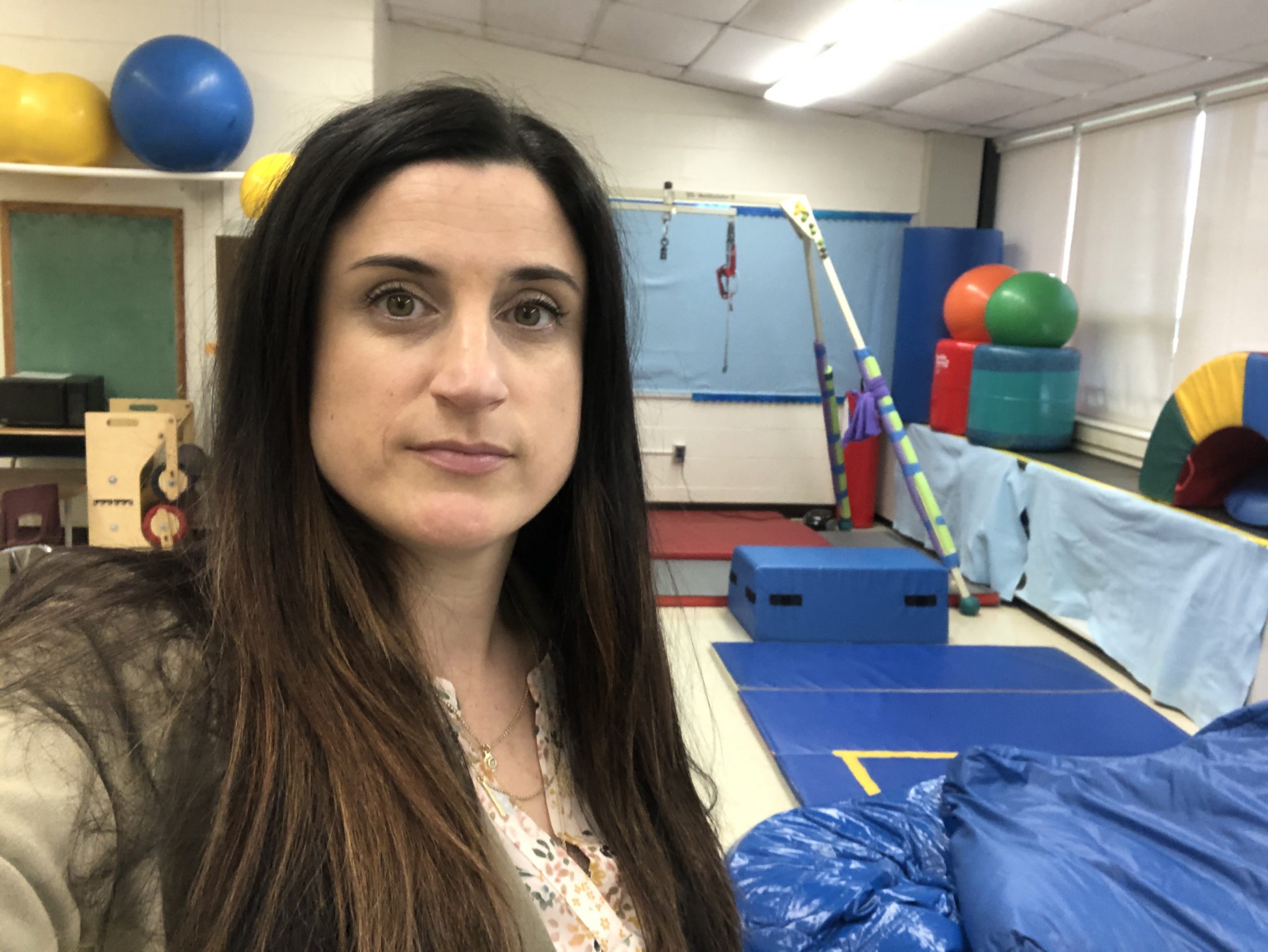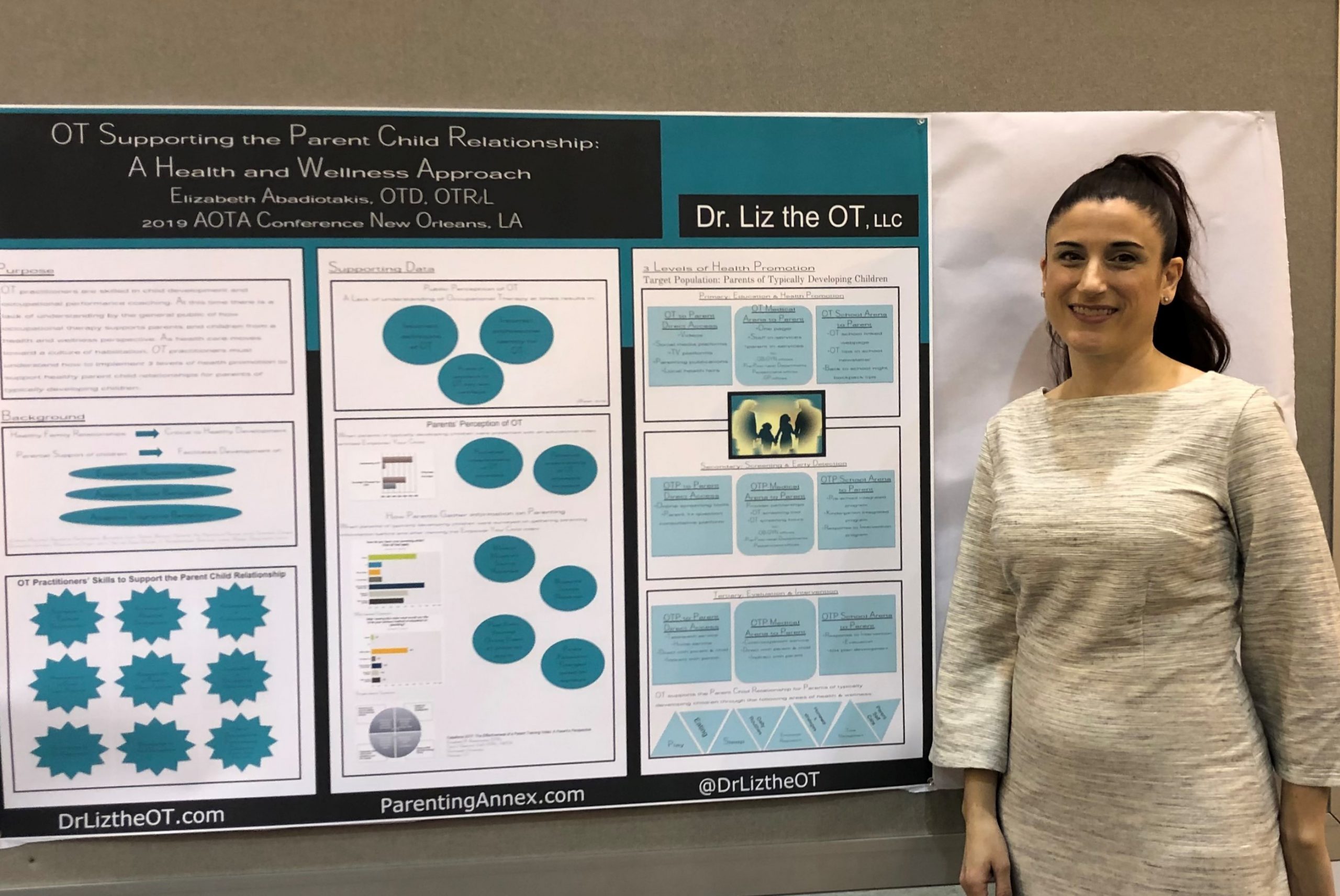Written By: Elizabeth Abadiotakis, OTD, OTR
 Are you an Advocate for OT? OT month is a great time to ask ourselves this question! There are many areas of advocacy; client-centered advocacy, professional advocacy, and legislative advocacy. Identifying yourself as an advocate can feel a bit intimidating. After reading this blog hopefully, you will be ready to take on this title and consider yourself an Advocate for OT.
Are you an Advocate for OT? OT month is a great time to ask ourselves this question! There are many areas of advocacy; client-centered advocacy, professional advocacy, and legislative advocacy. Identifying yourself as an advocate can feel a bit intimidating. After reading this blog hopefully, you will be ready to take on this title and consider yourself an Advocate for OT.
Let’s learn about types of advocacy and what we can do to get involved. Whether large or small acts, every practitioners’ efforts count towards the promotion of occupational therapy for client and professional success!
Client-centered advocacy is a way in which therapists reduce barriers to occupational success. This can look very different from client to client. For an older adult, this may be as simple as recommending a home safety visit prior to or just after discharge. For a young adult, this may be facilitating the client to share their interests and strengths in order to find a job or housing that represents their personal interests and needs. In young children, this can be offering resources to the family to assist them in better supporting their child’s unique needs. Advocating for our clients falls within our Practice Framework and is innate in our everyday practice (American Occupational Therapy Association, 2020b).
Professional advocacy is a way to promote the profession of occupational therapy and ensure the standards of practice within our workplace are appropriate and ethical. As advocates of the profession and active practitioners, we should all be familiar with both the Occupational Therapy Practice Framework: Domain and Process-Fourth Edition (2020b) and the AOTA 2020 Occupational Therapy Code of Ethics (2020a). In addition, AOTA joined the Choose Wisely Campaign in 2016 in an effort to promote appropriate care based on best practice recommendations. There are currently 10 Don’ts in OT practice on the list of items clients and practitioners should question. Professional advocacy begins with the foundation of collective professional knowledge. These AOTA documents allow us the most up-to-date information and terminology to ensure that we are all advocating in alignment with one another.
Legislative advocacy allows our collective voices to be heard by politicians creating the laws that guide how we practice. There are federal and state statutes with corresponding regulations that explain how a law is carried out. In OT practice, different practice arenas are regulated by different laws. It is important as a first step to understand what laws apply to OT in your practice arena. OT practitioners may be referred to in different ways within legislation i.e.: certified health professionals, therapeutic specialists, specialized instructional support personnel. Being familiar with the language used can make legislation easier to scan. Keeping up to date on when a law will be updated and possibly renamed and when new potential laws are being proposed can be tedious and time-consuming. Getting involved in both your state and the national OT organization allows you access to legislative information that is readily available and digestible.
So where do your skills stand out?
- Client-centered advocacy
- Professional advocacy
- Legislative advocacy
Benefits to State and the National Association
Joining your state OT organization is an easy place to get started and gain access to benefits such as:
- Local OT advocates
 Client-centered advocacy support through communities of practice unique to your state
Client-centered advocacy support through communities of practice unique to your state- Professional advocacy support through networking and mentor opportunities
- Legislative advocacy efforts that can change how you practice in your state
Joining AOTA allows you access to:
- National OT advocates
- Resources for everyday advocacy
- Resources on OT and Diversity, Equity and Inclusion (DEI)
- National networking through communities of practice
- Up to date federal legislative efforts through AOTPAC
Wishing you the best in all of your advocacy efforts!!
Dr. Abadiotakis is a board member of NJOTA and the moderator of the school based and pediatric community of practice in New Jersey. She feels her strengths over her 20+ year career have been in both client-centered and professional advocacy. She has recently gotten involved in legislative advocacy to support the passing of a federal law to support OTPs in school-based practice as well as to promote OT’s use of MTSS is school-based practice.
“It is never too late to advocate!”
~Dr. Liz Abadiotakis
Explore online continuing education courses from Elizabeth below:
Transition to Adulthood for Students with Developmental Disabilities
Visit summit-education.com for more information.
American Occupational Therapy Association (2020a). AOTA 2020 occupational therapy code of ethics. American Journal of Occupational Therapy, 74(suppl. 3), 1-13. https://doi.org/10.5014/ajot.2020.74S3006
American Occupational Therapy Association (October 7, 2021). Diversity, equity and inclusion strategic plan. AOTA.org. https://www.aota.org/about/diversity-equity-and-inclusion/diversity-equity-and-inclusion-strategic-plan
American Occupational Therapy Association (January 2022). Everyday advocacy decision guide. AOTA.org. https://www.aota.org/advocacy/everyday-advocacy/everyday-advocacy-decision-guide
American Occupational Therapy Association (2020b). Occupational therapy practice framework: Domain and process (4th ed.). American Journal of Occupational Therapy, 74(Suppl. 2), 1-87. https://doi.Org/10.5014/ajot.2020.74S2001
American Occupational Therapy Association (2020c). Occupational Therapy’s Commitment to Diversity, Equity, and Inclusion. American Journal of Occupational Therapy, 74(Supplement_3), p1-6. doi: 10.5014/ajot.2020.74S3002
American Occupational Therapy Association, Inc. (July 28, 2021). Ten things patients and providers should question. ChoosingWisely.org. https://www.choosingwisely.org/societies/american-occupational-therapy-association-inc/
Carey, A., Cockburn, L., Langlois, S. (2019). Investigating the provision of occupational therapy services: A case study. Canadian Journal of Occupational Therapy, 86(5):412-422. doi: 10.1177/0008417419835377
Dhillon, S.K., Wilkins, S., Law, M.C., Stewart, D.A., Tremblay, M. (2010). Advocacy in occupational therapy: exploring clinicians’ reasons and experiences of advocacy. Canadian Journal of Occupational Therapy, 77(4):241-8. doi: 10.2182/cjot.2010.77.4.6
Stover, A. D. (2016). Client-centered advocacy: Every occupational therapy practitioner’s responsibility to understand medical necessity. American Journal of Occupational Therapy, 70(5), p1-6. doi: https://doi.org/10.5014/ajot.2016.705003

Well stated. This is a critical time for legislative advocate that will change practice in New Jersey. Hoping to see more involvement from OT practitioners.